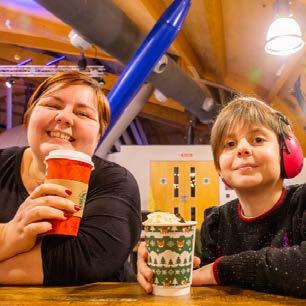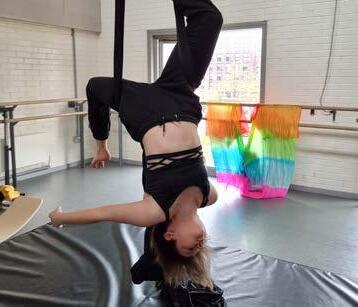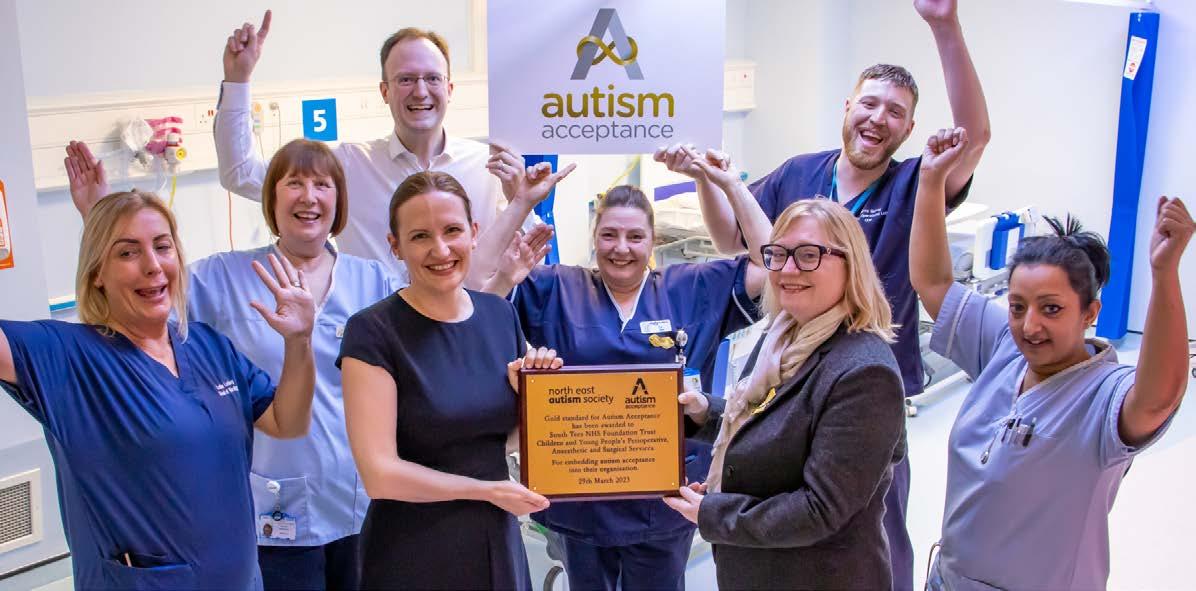
2 minute read
Thriving outside of mainstream
What are the best things about home ed?

Advertisement
Z – I get to do a lot of interest-led subjects. My tutor and I have been chatting and now we’re going to be 3-D modelling a character from a game I really like. I’ve done my Psychology GCSE which wasn’t even an option at secondary school, and I don’t have to do a foreign language which doesn’t interest me.
Nic – It was a big surprise to me that you can do a subject for six hours’ straight. Chopping and changing between different subjects throughout the day isn’t how autistic people thrive – it’s not hyperfocus, it’s not monotropic, it’s not interest-led.
How else is it different from school?
Z – Forest school is like a completely different universe. They treat the children like human beings and ask ‘OK, what do you want to do and how do you want to solve this problem?’ instead of just telling you to calm down. And it’s interesting – I can go in tomorrow, build a den, use a saw, and basically be free to do what I want.
I don’t dread it – I used to dread going into mainstream education. I was like ‘I can’t do this, I can’t do this’. I used to make myself sick with anxiety some days. Now I’m like ‘let’s go! Oh wait, I need to put my waterproof socks on.’
Nic – The difference for kids who are home educated is that you’re not forced to be around hundreds of people for 25 hours a week and you have friends, but if you come across someone you don’t get on with, it’s not a problem because you don’t have to see them.
But the kind of bespoke education Z has – even electively home educating – is a privilege. Not everyone can do this. Not everyone works from home. Some people are genuinely trapped in the system until either it ends or they reach a level of burnout and crisis that’s not manageable for their families anymore and then someone has quit their job.
What do you want to do in the future?
Z - To be self-employed because I have lots of things that I’m good at and have lots of things I want to do but they change each day. So then I have the freedom to be a lipsyncing aerialist one day and the next day I’m performing something else over there.

Nic – Follow that dopamine!
What message would you like to the education system take on board for Autism Acceptance?
Z – Shut up and listen! We can tell you what we need but if you don’t listen and keep telling us we’re not doing well, it’s no surprise because we’ve told you this needs to happen in order for it to be OK.
Nic – Staff in all schools should get autistic or neurodivergent-led training, and stop looking for X solution to fix Bobby who’s disturbing their class and being inconvenient to them whilst also forgetting Jenny who happens not to be disturbing their class but still isn’t all right.
I absolutely accept that we’ve had more education secretaries than hot dinners; I absolutely accept that it is a difficult job, that they are underpaid and undervalued. However, these children are not OK and the statistics around when those children become adults are frightening. If they don’t get it right, that has long-term consequences.
To read more stories around our #EverydayEquality campaign, go to https://www.ne-as.org.uk/pages/ category/everyday-equality.










